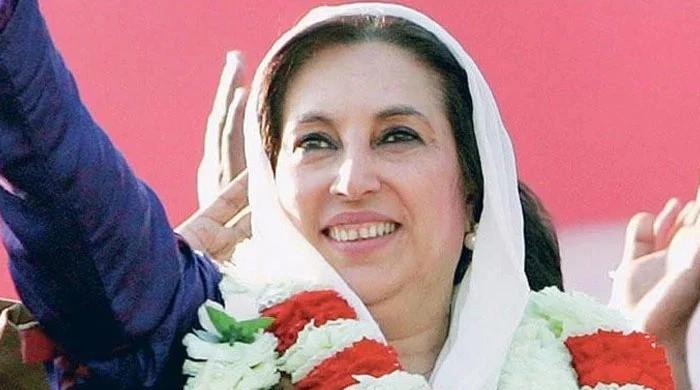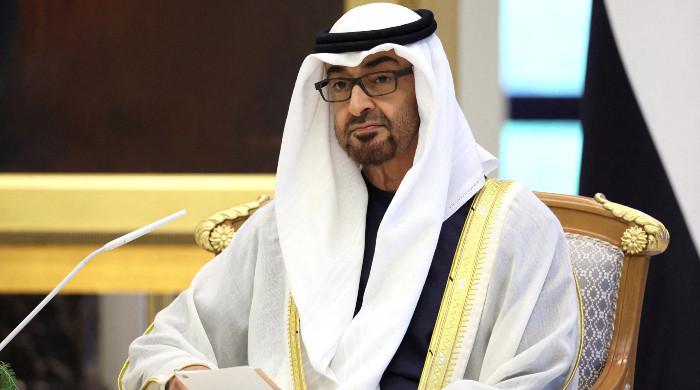Grading PM Imran at the UNGA
Pakistan has a lot less wiggle room than the fancies and fantasies of hyper-nationalists
October 02, 2019
Pakistan has a lot less wiggle room than the fancies and fantasies of hyper -nationalists and hawks that seem to think that sabre-rattling is a viable option for Pakistan. But it also happens to have a lot more freedom to operate on the regional and international stage than cynics or detractors would like it to.
This was the single greatest lesson of the incredibly potent manner in which Prime Minister Imran Khan captivated audiences during the UN General Assembly (UNGA) week in New York. The objective of the visit was to increase the world’s attention on Occupied Kashmir, and to expose the reality of the Hindu extremist roots of the current leadership in India.
PM Imran delivered both. Despite the stumbles and fumbles that come with ad-libbing serious policy content on some of the world’s most serious policy stages, PM Imran delivered a virtuoso performance. One measure of just how good it was? It helped paper over the ugly scars of Pakistan’s economic weakness, the lack of political coherence and consensus on key national issues and a growing hostility between Pakistanis that favour dissent as an expression of patriotism over Pakistanis that find only favour in the behaviour and actions of the state.
Perhaps even more important than all this was that PM Imran’s performance also rekindled international interest in Pakistan that goes above and beyond the almost two decade long archetype of the Islamic Republic of Pakistan that has been shaped due to a combination of the September 11 attacks, the economic rise of India, and the tactical quicksand that is the US/Nato mission in Afghanistan.
For extremely young Pakistanis, this is truly revolutionary. All those born after July 2018 really did experience a Pakistani PM speaking strongly for Kashmir for the first time ever. The rest of us have had the experience of watching prime ministers, presidents and foreign ministers at the UNGA in New York speak boldly and clearly for the rights of the people of Kashmir. What was unique about PM Khan’s inaugural visit to the UNGA was not that he spoke of Kashmir. There were three aspects of his performance that were different from past occasions, and for all three he deserves some, if not all, the credit.
First, and perhaps most important, foreign leaders do not doubt that the prime minister speaks in the same language and tenor as the sentiment of the high command of the Pakistani military. Civilian-military relations have long been a topic of fascination for foreign audiences, and have often been used as an analytical device, to undermine the validity and strength of whoever is speaking for the country at any given time.
The civ-mil disequilibrium has not been fixed, yet the PM has cultivated the image of being a soldier and defender of the rank and file of the military, whilst also forging a strong partnership with the military high command. This affords the PM important flexibility and space at home, and serious credibility abroad. In New York, without the burden the domestic economic and political mess that he has both inherited and helped create, PM Imran was perceived as the voice of Pakistan – with no serious crisis of confidence between him and the army. Regardless of how this partnership is judged by its detractors, it has delivered a successful UNGA mission.
Second, PM Imran connected with real audiences in New York in a real way. Unlike many other leaders, many of whom enjoyed a much stronger and less controversial mandate, PM Imran has the ability to connect with Western audiences in a manner that few, if any, of his living contemporaries can. The only Pakistani leader that had a similar ability was Shaheed Mohtarma Benazir Bhutto – who was able to electrify audiences as she shattered stereotypes. But the last time BB did so as a prime minister was the mid-1990s. For many above a certain age, it is easy to forget that her most recent performance on the world stage leading Pakistan was a quarter century ago.
At both the Council on Foreign Relations event, and the Asia Society event, PM Khan uttered many sentences that critics have rightly been all over him for. But the critics forget that not everybody is as invested in the details of Al Qaeda’s origins or the importance of nuance in discussing money laundering as experts and critics tend to be. On the whole, PM Khan spoke in New York with authority, his typical self-confidence and perhaps most importantly, authenticity. Often times, what he was saying was counter-intuitive to those listening: but they listened. As so many urban, upper middle class Pakistanis tend to insist with such vociferousness, PM Imran has genuine appeal. In New York, we saw that version of the prime minister, and Kashmiris and Pakistanis were better served for it.
Third, PM Imran met with a wide array of influential leaders and public figures than is usual for Pakistani delegation at the UNGA. This helped expand the universe of influence that Pakistan was seeking, and it exposed many business leaders and other public figures to the PM’s authenticity, which is even more pronounced in private meetings than it is when he speaks publicly. Dozens of CEOs, media figures and diplomats that were attending the UN came away with a different take on Pakistan.
It is easy to forget how deeply embedded the post-Kargil and post-October 2001 invasion of Afghanistan version of Pakistan really is. And it is harder still to imagine that there was once a Pakistan that operated on the global stage with great confidence, and to rave reviews. But there is. And there was. And PM Khan’s performance in New York showed that there can be.
The apologetic Pakistan that is sorry for all the trouble in Afghanistan, and needs money to survive, is an archetype built on solid foundation – but there is no rulebook that says Pakistan must stick to this single archetype for all time to come. The August 5 lockdown of Kashmir has already devastated Kashmiris, but it has also created an opportunity for Pakistan – if only its leaders will take it.
The opportunity is to reshape Pakistan from being a target of censure and suspicion to being a source of hope. Four things can help achieve this. One, a continuation, and even tightening of the noose around banned organizations. Two, forging a broad political consensus on key national issues with the PML-N and PPP, and allowing compassion and convenience some space, over misplaced righteousness (and hypocrisy). Three, a robust and relentless pursuit of growth that overcomes the PM’s fallacious allergy to deficits, and infrastructure. And four, supporting for our Afghan sisters, and brothers the same democratic values and principles that Pakistanis hold dear for ourselves.
With his performance in New York, PM Imran offered us a glimpse of what could be. But then, on Monday, PM Imran reminded us in Islamabad, a glimpse of what really is: his first act, as many of us await serious policy measures that help consolidate the gains that he achieved in New York, was to replace Maleeha Lodhi, a remarkable and substantive woman who performed admirably on the UN stage, with Munir Akram, an experience, but almost-octogenarian retired gentleman who should be writing books and training a new generation of diplomatic talent. Nothing captures the paradoxes of being Pakistan better than this unnecessary own goal. The PM trusted his instincts in New York. It is hard to imagine it was those same instincts that prompted this change.
The writer is an analyst and commentator.
Originally published in The News









